It’s Earth Day, I figured I should talk about Earth stuff. How about, sustainable energy.
A few weeks ago, I was teaching one of my science classes about energy. The focus was on kinetic and potential energy because it meant that the kids got an excuse to launch pingpong balls around the room with elastic band-powered catapults. But while I was giving the pre-activity talk I mentioned solar energy and solar panels. One of the kids asked, with understandable frustration, why people don’t more people use solar power. The sun’s right there, all the time.
The question and frustration caught me off guard. So I was stuck standing there with a laminate in my hand depicting solar panels and no answer for this kid. So I decided to look it up. Why don’t more people use renewable energy?
The answer, it seems, is “because of reasons”.
No, I’m serious. The scientifically proven answer for why more people don’t use solar panels is “reasons”.
The thing is, researchers have been trying to figure out why, regardless of an increase in pro-environmental attitudes, more home-owners don’t choose solar panels. Based on the attitude data, it doesn’t make sense and this problem is called the “attitude-behaviour gap”. It’s exactly what it sounds like. People may feel that being “green” is a good thing, but that does not always translate into sustainable buying practices. A study from 2013 examined this in Ireland and found some interesting results.
There are four main factors that affect whether or not a person installs solar panels onto their home:
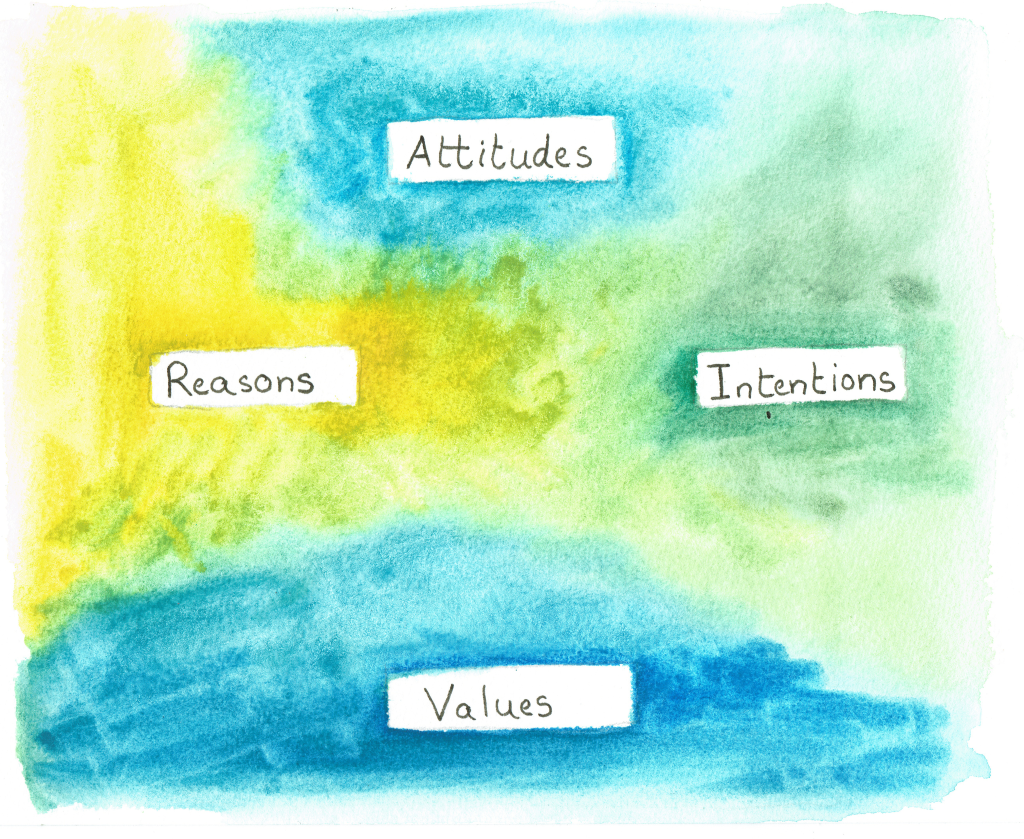
The four factors that influence whether or not a person installs solar panels are: Intentions, Attitudes, Reasons, and Values
“Intentions” are used as a proxy for behaviour in these kinds of studies. I’ll just use it here too so I don’t end up butchering the science
“Attitudes” are a person’s big-picture motivations. There is a lot of research that shows that a positive attitude to adopting sustainable energy is related to a higher chance of actually adopting the practices/tools.
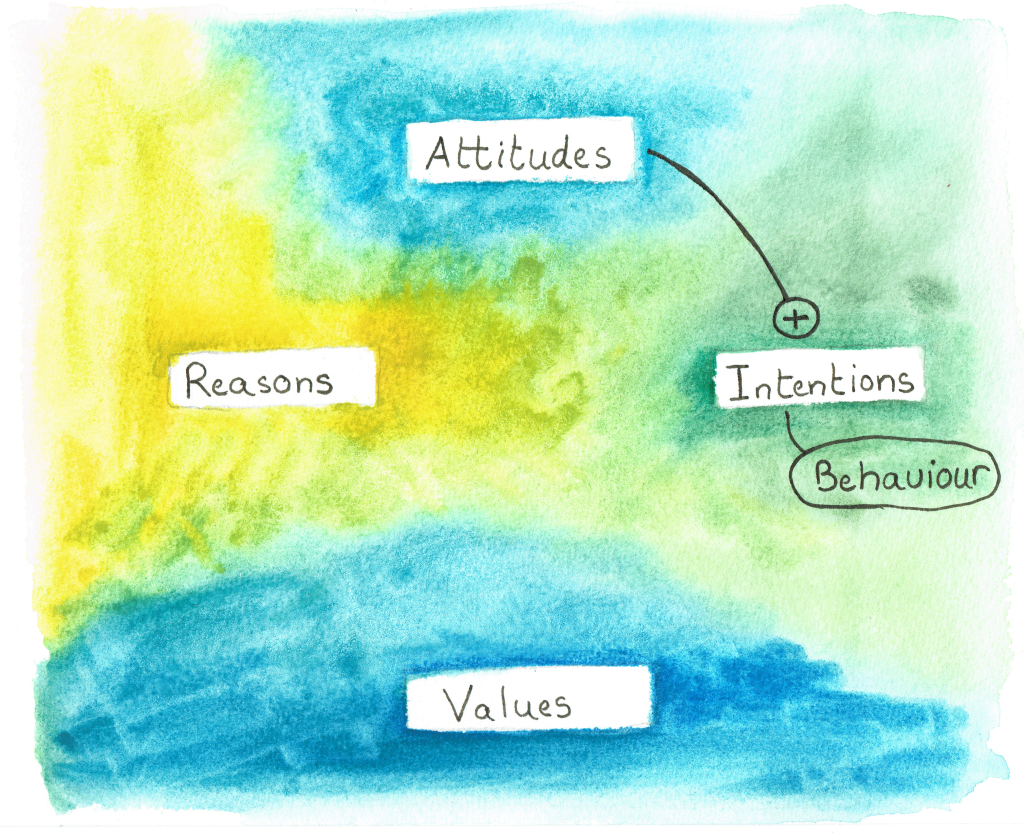
Several studies have shown a link between positive (+) attitudes and whether or not a person engages in sustainable behaviour.
Then we come to “reasons”. These are specific factors that people use to explain their behaviour and justify their decisions. These are specific to the individual and situation.
Finally there is “values” and this is what it sounds like. What does a person value? What are their beliefs. These are different to the “reasons” because while reasons are very specific to the situation, values are the more broad feelings a person has about a topic.
What was novel about this study was that they included “reasons” because people who do not use solar panels do not think we should all die in a cloud of fossil fuels. They do not have anti-environmental attitudes. They just haven’t adopted a behaviour and it’s not because of their attitude and the study aimed to address why.
What the study found was that the reasons why people adopt green energy influences their attitudes and in turn influences their intentions. The pro-solar panel reasons include:
– “they would eventually pay off and make a profit,”
– “would reduce my monthly energy bill significantly,”
– “reduce my dependency on oil and gas,”
– “make me self- sufficient,”
– “make me independent from national energy providers”
– “would improve my local environment”
– “significantly reduce greenhouse gases.”
If you look at the list above, the reasons can be linked to a some sort of pro-environmental attitude like improving the health of local environments, independence and energy-use reduction. So, reasons FOR solar panels do not influence intentions directly, but pass influence attitudes which influence intentions.
However, reasons AGAINST solar panels directly influence the intention while by-passing attitudes The reasons against solar panel installation include:
– [The cost] “would be too high for me”
– “I find them a financial strain.”
– “they would not fit with the existing infrastructure of my house,”
– “in order to install them, I have to undertake some serious renovation,”
– “they could only be installed on my house with major additional work.”
– “solar panels would not provide the level of benefits I would be expecting,”
– “how much ongoing maintenance they would require,”
– “how dependable and reliable they would be.”
As you can see, all of these reasons are specific to the installation to solar panel onto that person’s home. They are not “anti-solar panel” reasons. Reasons can provide a context-specific justification for not adopting a behaviour even if adopting aligns with the person’s environmental attitudes.
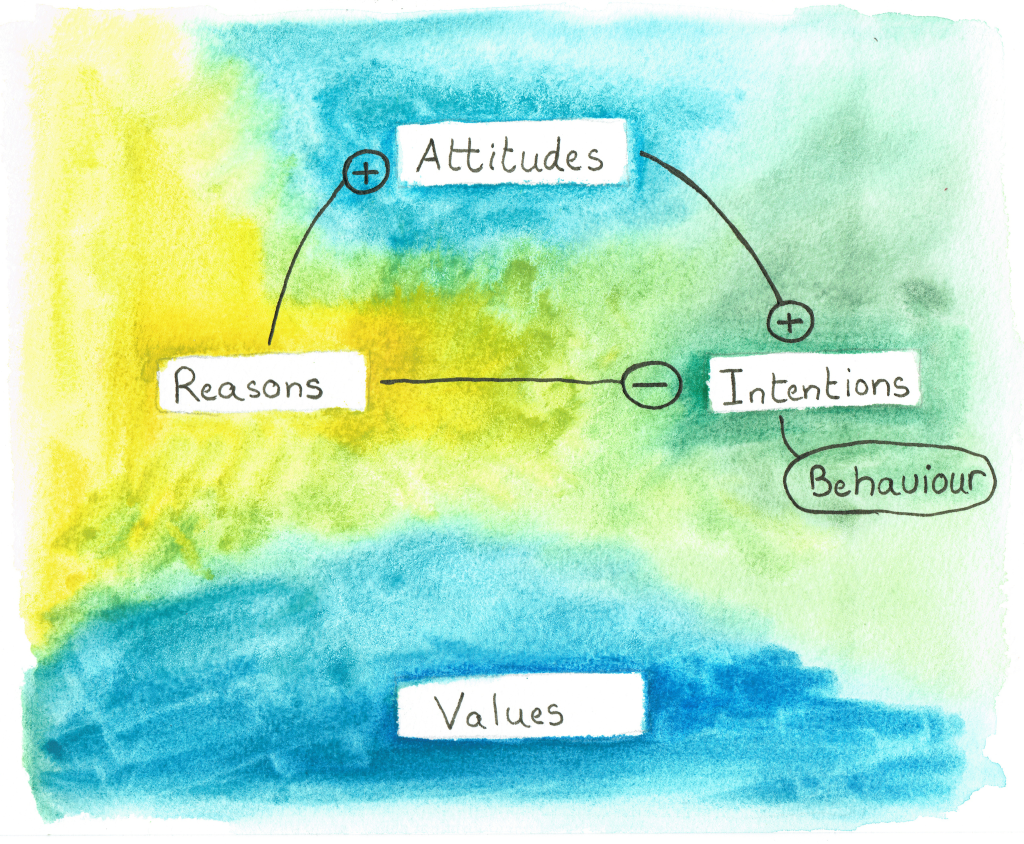
Reasons against (-) installing solar panels onto a home affect behaviours without affecting attitudes.
Then we get to the topic of values. Values are not to be underestimated in science communication, and the research shows that values influence attitudes indirectly through reasons.

Values influence intentions through reasons (both for (+) and against (-) the installation of solar panels)
You may be asking, why is any of this important? It’s Earth Day, let’s just have green parties. Well, it’s important from a science communications perspective. If you’re trying to encourage more people to use solar panels, for example, telling them they’re good for the environment isn’t going to cut it. People know they’re good for the environment and appealing to their attitudes isn’t going affect change because for the most part, most people in developed nations in 2015 have pro-environmental attitudes. You must address people’s reasons for not adopting solar panels and provide better reasons to adopt solar panels.
Now another question you may be asking is: DO I have solar panels? No. What is my reason? Because I rent. I can’t just tack solar panels onto the roof of my rented house. This is the reality of anyone who is not a homeowner. But in the event I do become a home owner, my partner and I would love to get solar panels.
You can take this idea and apply it to any other pro-environmental decisions. You want to convince people to make “green” choices? Well harping on to them about how they have to help save the environment will make them shut down. You have to find out what reasons they have for not adopting the behaviour. This all comes down to knowing your audience.
Cheers,
_____________________________________
References:
O’Driscoll, A., Claudy, M. and Peterson, M. Understanding the Attitude-Behavior Gap for Renewable Energy Systems Using Behavioral Reasoning Theory. Journal of Macromarketing 33(4) 273-287. doi: 10.1177/0276146713481605


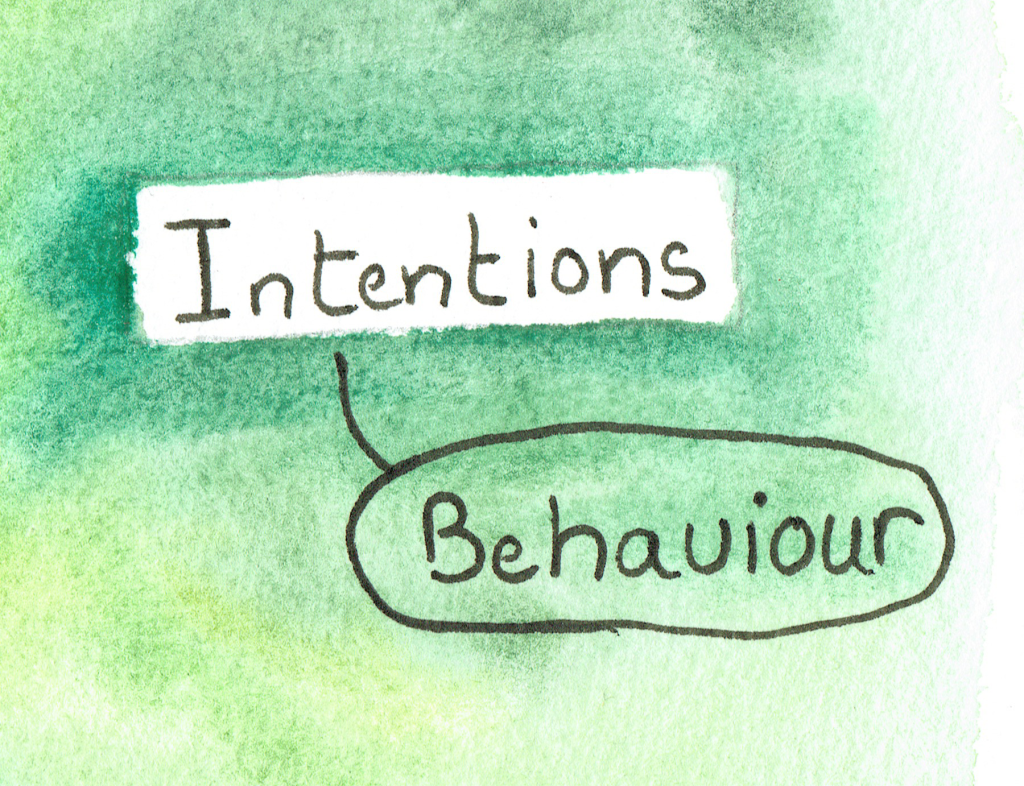
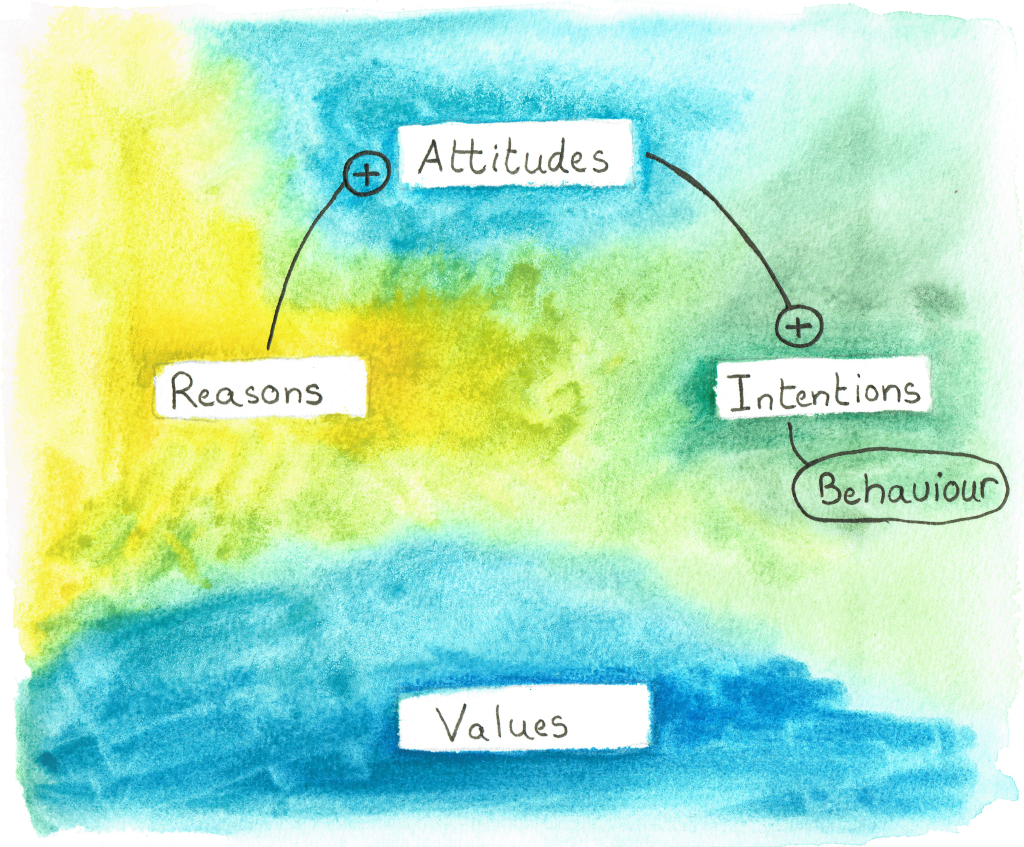

No Comments